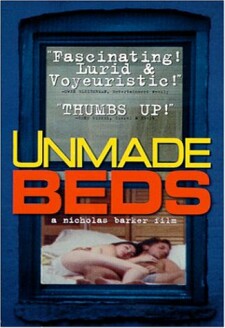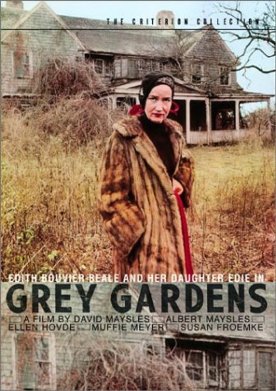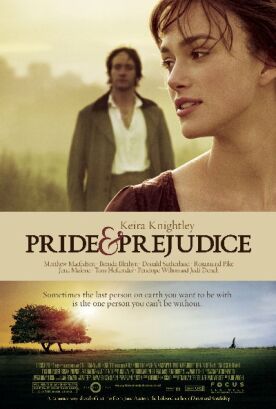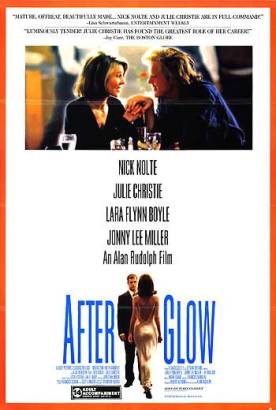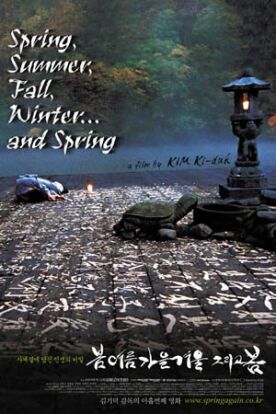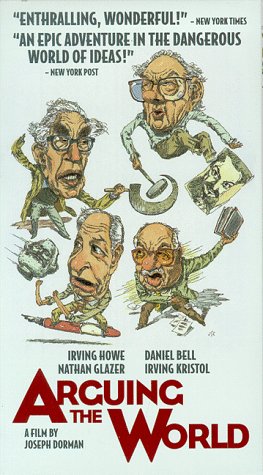Unmade Beds
Unmade Beds by Nicholas Barker is the sort of picture I would normally hate: a kind of heightened documentary that is not really, as it purports to be, straightforward interviews with four single adults in New York but rather staged interviews in which each of the subjects has been given a chance to work up his or her best responses to a series of questions about themselves and living single in the city. As it turns out, however, this is the ideal format for such a show because it is not after all a documentary about sex and the single person in New York, which is what all of them think it is about, but about self-deception. Barker has been as fair to them as possible and given them a chance to get their story straight, not for our sake but for their own. These are people whom years of “dating” have rendered emotional and moral cripples. Each is pathetic in his own way, and each has a very carefully developed stratagem for disguising the fact from himself.
Brenda Monte is about 40. Her studied indifference to sex and men, who are always “coming on to” her or, oddly, simply wanting to expose themselves to her, is complemented by her determination to marry for money. “My income is $2000,” she says, “and my expenses are $3000. There’s no way you can make that work.” Her continuing insistence that she has a perfect right not only to marry for money but that she can easily do so and then not engage in sexual relations with her putative husband is part of an aggressive assertion of entitlement which includes her right to shoplift small but expensive things she needs. Dog food, for instance, she always shoplifts. “They’re God’s creatures,” she says. “It should be given to me.” Her insistence in various ways on the differences between herself and a prostitute suggest a painful underlying consciousness of what she is in fact on the point of becoming.
Mikey Russo is 50ish by the calendar but mentally remains the 25 year old swinger he was in the early 1970s when it was thought very cool and sophisticated to enjoy sexual relations with three women in a 24 hour period. That is what he did once, anyway, back in 1974, so he tells us. Now he can’t understand why he’s still not doing it. Maybe it’s his extremely high standards in women. “I don’t go out with mutts,” he says with the same kind of insistence Brenda gives to her declaration that she’s not a prostitute. Mikey’s idea of honesty is confessing that he “was never a Robert Redford or Paul Newman type.” No, “I was always more the Jack Nicholson or Harvey Keitel kind of guy.” He also confesses that sometimes he lies to impress women. He says he’s a “first run screenwriter.” It’s not a total lie because he is a screenwriter. Not that he’s ever sold anything. But we see him at his computer, typing out some hackneyed dialogue. As in his hilariously outdated 70s bachelor pad, decorated with pornographic art, he thinks he cuts quite a glamorous figure.
Aimee Copp frankly confesses that she is desperate. Oddly, she is the youngest of the four. At 28, however, she seems to think that she is almost out of time to marry and have children. Like the others, she just can’t understand why it is so difficult for her to find romance. She has just broken up with an obviously unsuitable guy — older, unemployed, who wanted to get her involved in sado-masochism and bondage. She’d gone along with it just to please him, and now he’d broken up with her. “Hello? You’re 40 and a loser: aren’t I of some benefit to you?” she asks the camera rhetorically. She’s better off without him but still finds it embarrassing that she was “dumped by a submissive.” Later she calls him trying to get back together. She chats with her oldest girlfriend, Lori, about what she can do to find someone to marry in the next year. The girlfriend suggests in the most tactful and diplomatic way she can think of that she might want to think about losing a few of her 220 pounds. Instantly, Aimee becomes emotional and defensive. What would be the point? she says. She’s always had a weight problem. Sure, she could lose “tons of weight” but she’d be sure to put it back on again and then where would she be? Lori changes the subject and says soothing, reassuring things. A lot of the people who are married for 50 years are miserable. Look at all the fun she’s having that her grandmother didn’t have.
Michael De Stefano is five feet four. So far as Michael De Stefano is concerned that’s all you have to know about him. Fate has dealt him a cruel blow. Our culture expects the man to be taller than the woman, and he finds that most of the women he is interested in are taller than he is and, thus, not interested in him. Everything comes down to height in the end, and it is obviously reassuring to him that the reason for his romantic failures is so entirely outside his control. That’s how Aimee felt too, and, like her, he is desperate to marry. At 40 and with no prospects, he has to keep reassuring his mother that he’s not gay. As “a real last gasp” he’s decided to try going to a “dating coach” — someone who will advise him on the things he can do to attract women, though he is defensively skeptical about it. “You have a coach for tennis or golf. Something where you have to master the technical details. But having a life? You’re supposed to do that on your own.”
It is almost the only remark made by any of the four that smacks of self-knowledge or even self-detachment. The cult of romantic love and the multi-billion dollar culture we have built on it ends here, with Brenda looking at her body in the mirror and showing to the camera how it has changed since she was young. She remembers once long ago seeing a middle aged woman whose flabby upper arm flapped from side to side when she lifted it. “Please, God,” she had prayed silently to herself, “don’t ever let that happen to me.” Now that she is in her 40s, the reality of aging and decay and loss, the human condition itself, comes as a complete and horrifying surprise to her. Somehow she always thought that it needn’t apply to her, that the God to whom she prayed would exempt her from the laws of nature just because she wanted it. Like so many other moments in this wonderful film, it rings completely and depressingly true.
Discover more from James Bowman
Subscribe to get the latest posts to your email.

